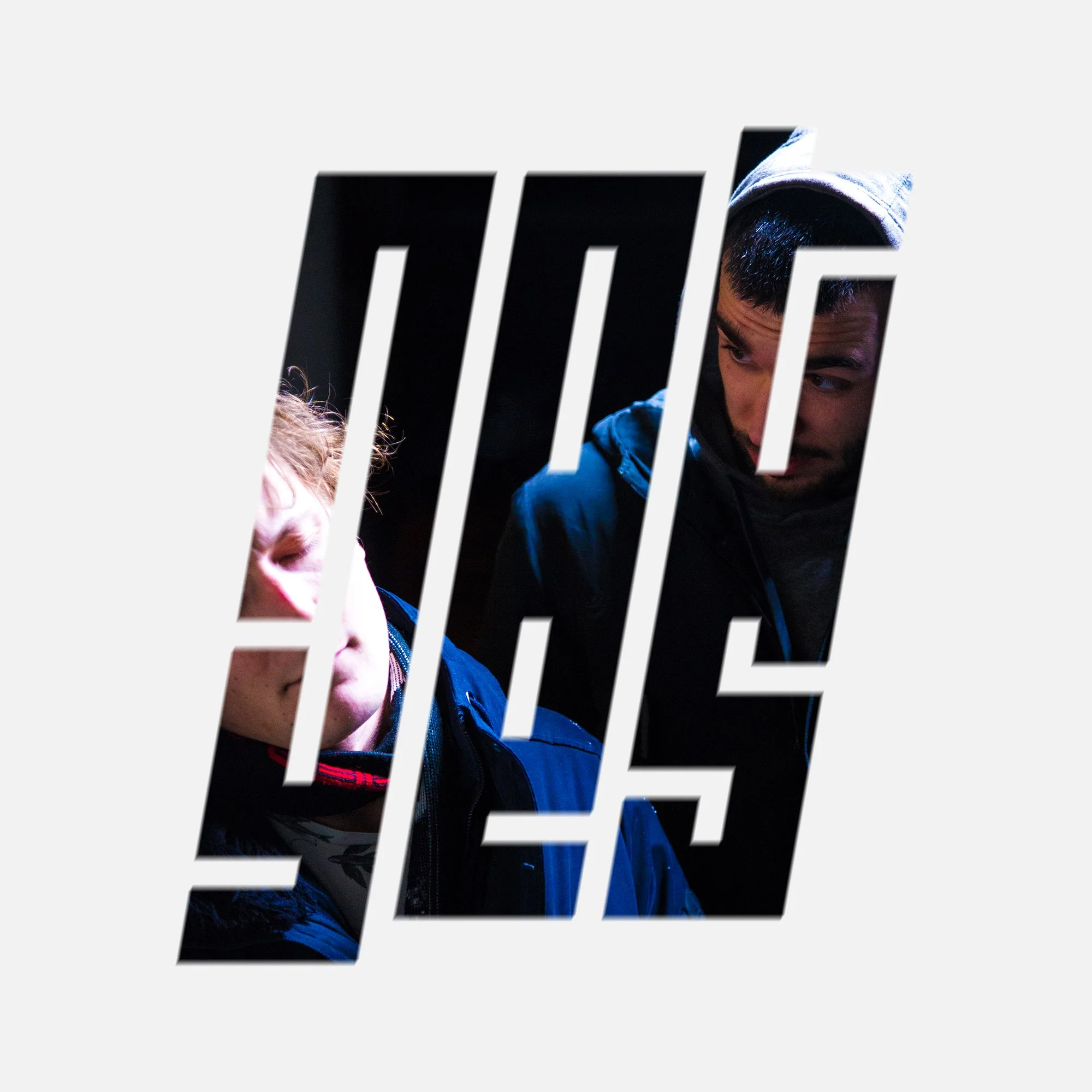For the last six years, Jackson Hale has been pushing the boundaries of his musical acumen through the Zonra project; mingling precision production with gradually shifting compositional styles, he's kept his approach consistently fresh and above-par for the fidelity of his work. In line with his own burgeoning interests in multidimensional art, and with the shift towards digital streaming platforms across the last year, he's embarked on a stream series of curated A/V sets, mingling unreleased material, old favorites, potent reworks, and the first lens into the visual stratum of his creative endeavors.
The proficiency of the Zonra project is the boon of a lifetime of musical study and experimentation. Hale's choice of style, genre, and sound palatte have evolved several times across a distinct career, and the incoming release of his next collection, the Hypotheticals EP, showcases a further evolution in his production and songwriting processes. After the debut of his first A/V performance in October, he graciously agreed to entertain a series of interview questions for The Rust on his latest performance developments, his musical upbringing, and the novelty of sound.
The Rust: The Zonra project has undergone a stylistic metamorphosis more than once at this point; what draws you towards each successive form your music takes?
Zonra: My approach with music production has always been to stay open to whatever direction interests me, and to explore it with patience. Ultimately, many of my stylistically-diverse projects will unfold together, and slowly, while new techniques are explored, learned, and shared between pieces. The propelling force behind my music is generally to find (it has always felt like more of a 'find' here than a 'create') an overall system of novel or crystallized ideas in sound that work together to create an experience that is larger than the sum of its parts, iterating through different versions or expressions of those ideas until some type of well-rounded arrangement appears. Recent audible experiments combined with influence from whatever I've been listening to at that time in my life tend to shape my tracks.
The Rust: Can you talk a bit about your musicianship and production background?
Zonra: I started with piano at a young age, and took up drums and percussion a little while after because I was bored with piano. I played drum set in various jazz bands through middle and high school, and always loved being part of the non-verbal communication that occurs between players' during solos. It's magic. I stumbled into electronic music production via Audiotool.com around age 15 where I learned the basics of synthesis, sequencing and sample editing — posting lots of tracks under the username Astrum. After several years, I found myself needing software that could handle larger projects and let me sketch more freely, and soon I really felt like I'd found a sound that was all my own- or at least a more specific focus within music production. As a kid I loved getting lost in certain songs, really losing myself in the mix and the cohesion of all the different instruments working together. The power of a clean mixdown is endlessly interesting to me — it's not necessarily the content of a song but rather the way it is presented that determines how it impacts. A degree in Recording Arts has helped me solidify my knowledge here. The creative powers of synthesis, sound design, and spatial audio have dictated the parameters for many of my projects — though to really get going on new ideas I have to forget about all that stuff and just have fun in my studio.
The Rust: How did you find yourself interested in performing A/V sets? Have you always had an inclination for visual art?
Zonra: I've always loved multi-media art and the idea of using different technological media to create unique, immersive experiences. I got my first camera this year and started recording videos of the world around me. I also got back into learning Max this year, and realized there was a way of using Max to connect my APC Mini to these videos, in effect creating my own VJ setup without having to buy any extra software. This gave me a brand new outlet for live creation during streams, as opposed to the (in my experience) detail-oriented, repetitive work of creating a song. After buying a green screen and building a PVC pipe stand for it for around $6, I was able to fully recreate the effect of performing on stage in front of a video wall, with the added bonus of being my own VJ. I had suddenly found a new dimension to play with — one that doesn't demand any editing sessions or prolonged contemplation of its presentation in order to be utilized and presented. Creative work is, at its heart, finding spaces where you can let yourself be free.
The Rust: Can you unpack some of the programming involved with crafting a smooth A/V performance? What's that experience like as an individual performer behind manning both helms?
Zonra: The first thing I needed to figure out was how involved I wanted to be with the visual aspect of the performance, and subsequently what the limitations of my current setup would allow. I'm continually using a process of trial and error to figure out what works for me and what works in the medium of live video streaming. My visual control setup uses a Max patch I created to connect my APC Mini to a playlist of video clips that I've recorded throughout the year and then running those through built-in visual data processing modules to add controllable effects, including pixelation, adjustable angled mirroring, and zoom depth, to create various kaleidoscopic effects. Having even a few different effects at my fingertips creates what feels like near-endless possibilities when connected to my video library. It's super fun to explore all these combinations of videos and music, constantly being surprised by the results that I'm given. Working with my own visual content is especially gratifying in that it lets me evolve and give new life to my music.
The Rust: We're now eight months beyond the initial surge of viral infections throughout the world, and closing in fast on the end of the year; what's your experience been like throughout the turmoil and tribulations?
Zonra: I have my health and I have employment which many can't say right now. Musicians are in a weird spot especially where the ultimate form of the art- live performance in a venue, connecting you with the audience into some kind of vibed-out hive-mind- is now a public health hazard. I know we all miss live music and its ability to connect us. I see this pandemic as having a catalytic effect on people: whatever energy you've been cultivating these past few years is amplified by the ever-present fact that activities we formerly took for granted now have sickness and death as potential side-effects- those who project love and healing into the world are reaffirmed in their nature and know the importance of what they do for others, while people with short fuses have even shorter fuses. My studio is more my safe haven than ever before. I'm just trying to stay positive and create the best music I can. I don't know if I would have expanded my work into visual art if not for the cancellation of all live events this year, so there's that.
The Rust: What's on the horizon for the Zonra project after the conclusion of the A/V stream series?
Zonra: I'm thinking I'll continue to explore the realms of live streaming and visual art in the context of my music. I feel like I've barely scratched the surface so far. I've got lots of music that needs further unfolding- the work never ends there.
Coming in hot this evening is the second 90-minute installation of Zonra's A/V series, and it's sure to be bursting with sonic intrigue ahead of the release of his latest EP. We'd tell you to stay tuned into the gradual developments under the Zonra umbrella, but we get the feeling you're just as hyperaware as we are.
You can catch the stream tonight from 8-9:30pm PST on the Zonra Twitch channel.
FOLLOW Zonra: Bandcamp / Spotify / Soundcloud / Facebook



![Seppa - Interview + Boosted [EXCLUSIVE PREMIERE]](https://images.squarespace-cdn.com/content/v1/59530136f5e2319eabb7d87f/1626113208781-BZ7C6B7E3LCECV7UD4CS/Boosted.jpg)
